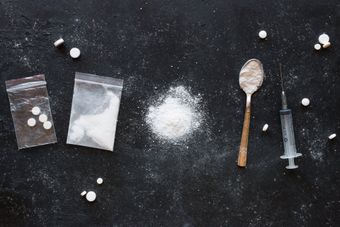Our Hanlon Law Statements
Table of ContentsGetting The Hanlon Law To Work5 Easy Facts About Hanlon Law ExplainedHanlon Law Fundamentals ExplainedGetting My Hanlon Law To Work
When an accused takes place test for presumably devoting a criminal activity, a prosecutor should establish that the accused is guilty of the criminal activity beyond an affordable uncertainty. At the exact same time, the criminal accused is entitled to provide a defense and also may do so with a range of methods. The offender might try to poke openings in the district attorney's instance, suggest that another individual committed the criminal activity, or suggest that he or she did commit the crime but had a legal and also affordable defense for doing so.
In some states, the protection of madness will enable an offender to stay clear of prison however will certainly call for that the defendant be held in a psychiatric facility for therapy. Similarly, the defense of drunkenness Relies on the theory that the offender can not fulfill all of the components of the criminal offense because he or she did not recognize what he or she was doing (Sex Crimes in Orlando FL).

Not known Details About Hanlon Law
Similarly, error of legislation applies when a criminal offender thought his/her actions were lawful. This defense uses in only extremely restricted circumstances. Self-defense (or defense of another) Discomfort Necessity One more category of defenses uses when the defendant committed the crime yet argues that she or he was validated in doing so.
An accused may say, as an example, that he did shoot an intruder yet did so in protection because the intruder was threatening him with a knife. Similarly, under a protection of duress, the criminal offender argues that he or she only devoted the criminal activity since she or he was forced to do so by somebody else.
Under a need defense, the criminal offender may argue that he or she committed the crime in order to prevent a much more significant injury. For circumstances, the defendant may compete that it was necessary for him to swipe a car in order to go after down an additional individual who was intimidating to use an eruptive tool.
First, the offender might argue that no crime occurred due to the defense of approval. As an example, the defendant may say that although intercourse happened, it was not rape because there was consent. Likewise, he might argue that there was no assault because the victim consented to the injury.
The Ultimate Guide To Hanlon Law
Third, the defendant might say entrapment. Entrapment happens when the government generates an individual to commit the crime and afterwards tries to penalize the individual for it. The offender might argue that no criminal offense would have taken place however, for the federal government's incentive, and also he or she need to therefore not be held accountable.
To efficiently convict a criminal defendant, the federal government has to verify the offender was guilty beyond a practical doubt. One of the most typical defenses criminal defendants may increase can be grouped into 2 general classifications first, refuting the accused did anything (consisting of the alibi defense), and also second, recognizing the accused did the act but only under extenuating circumstances (including self-defense, insanity, entrapment, as well as drunkenness defenses).
As an example, if an offender is charged of committing a burglary however can confirm that he was at the dentist or conference with a technician while of the criminal activity, he may be successful in his alibi defense (Sex Crimes in Orlando FL). Protection was the key question raised in the current George Zimmerman situation. https://www.bookmarks2u.com/author/hanlonlaw23/.
The insanity protection is an incredibly intricate defense, yet it is usually based pop over to these guys on the concept that penalty is only justified if the accused is capable of managing their actions. Due to the fact that a few of the emotionally ill are not efficient in identifying right from wrong, the craziness protection stops them from being criminally accountable.
Hanlon Law - Questions
If, nonetheless, a jury thinks that the defendant was predisposed to dedicate the criminal offense anyway, this protection will not achieve success. In Tennessee, volunteer intoxication does not excuse criminal activities. Nevertheless, a protection of uncontrolled intoxication might prove effective (https://www.bsocialbookmarking.info/author/hanlonlaw23/). If you've been accused of a criminal offense, get in touch with a qualified criminal defense lawyer to aid you consider your ideal strategy and also attain the very best possible end result in your case.
Below are a handful of means in which a defendant might assert an effective defense. To found guilty a criminal defendant, the prosecutor needs to verify the accused guilty beyond a practical question. As part of this procedure, the offender is offered a possibility to provide a protection. An accused may mount a protection by remaining quiet, absent any witnesses and saying that the district attorney fell short to confirm his/her case.
There are many other kinds of defenses, from "I didn't do it" to "I did it, however I was also intoxicated to understand what I was doing."All individuals charged of a crime are lawfully assumed to be innocent until they are convicted, either in a test or as a result of begging guilty.
If the prosecutor can not convince the jury that the offender is guilty, the offender goes free. The anticipation of innocence, combined with the truth that the district attorney must show the offender's regret beyond a sensible uncertainty, makes it challenging for the government to place individuals behind bars.